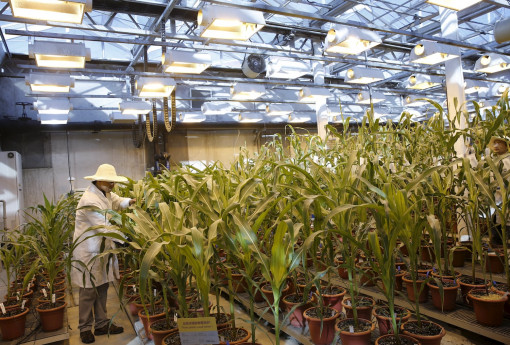Agriculture ministry promotes ways to help farmers boost production while reducing climate-related losses
PUBLISHED : 1 Feb 2024 at 20:13

The Ministry of Agriculture and Cooperatives is committed to moving ahead with new gene editing technology to improve an agricultural sector now under threat of falling yields caused by climate change.
Speaking at a recent seminar on advanced biological technology for dealing with climate change and emerging plant diseases, Agriculture Minister Thamanat Prompow said advanced technology for improving crop plantations would play a vital role in helping farmers boost production while preventing loss reduction from climate change impacts.
“The ministry is ready to support gene editing as a means to provide a better option for farmers who need good seeds to plant,” Capt Thamanat said.
He said the ministry would also seek more cooperation from both domestic and international partners so they move ahead with the policy, including the UN Food and Agriculture Organization (FAO) and foreign embassies.
Gene editing technology has been evolving since 2013, using the Crispr system to extract DNA, proteins or RNA from plant species that need to be edited.
“We will amend any regulation that is an obstacle for the technology,” the minister said, adding that gene editing technology would first be applied to economic crops, such as rice, cassava and rubber.
Rapibhat Chandarasrivongs, chief of the Department of Agriculture, said gene editing has been supported by the FAO and is regarded as the future of genetic development for plants.
He said gene editing is likely to be safer than genetically modified organisms (GMO) because it takes “non-foreign DNA” to make the genetic changes required to increase resistance to disease and drought, increase production and cut reliance on fertilisers and chemicals.
GMO, on the other hand, needs DNA from microorganisms to modify the DNA and the “foreign DNA” still exists inside the plant, which leads to concerns over health and environmental impacts.
“Gene editing still needs regulations or even a bill to support its development for safety reasons,” he said. “We need to listen to all stakeholders’ opinions regarding food safety so we can move ahead this year.”
Boonyanath Nathwong, president of the Thai Seed Trade Association, said gene editing is a cutting-edge technology for agriculture. The country could benefit from it because it is one of the world’s top 10 seed exporters with a value of more than 20 billion baht.

